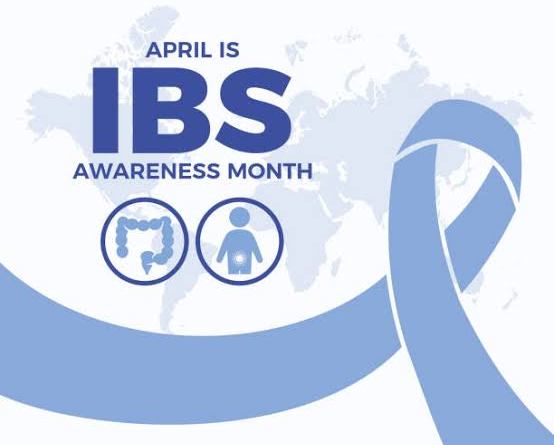IBS Awareness Month: Understanding and Spreading Awareness About Irritable Bowel Syndrome
April marks IBS Awareness Month, an important time dedicated to shedding light on Irritable Bowel Syndrome (IBS), a common but often misunderstood gastrointestinal disorder. Throughout April IBS Awareness Month, patients, advocates, and healthcare providers unite to educate the public, encourage research, and offer support to those affected. With millions of people around the globe dealing with IBS symptoms daily, raising IBS awareness has never been more critical.
What is IBS?
Irritable Bowel Syndrome (IBS) is a chronic disorder that affects the large intestine, causing symptoms like abdominal pain, bloating, gas, diarrhea, and constipation.
Although IBS doesn’t cause permanent damage to the colon, it can significantly impact quality of life. It’s a condition that affects an estimated 10-15% of the global population, according to the International Foundation for Gastrointestinal Disorders (IFFGD).
Despite its prevalence, IBS remains largely misunderstood, often leading to stigma and a delay in seeking treatment. That’s why efforts during National IBS Awareness Month are so crucial.
The Importance of IBS Awareness Month
The goal of IBS Awareness Month is to increase public knowledge about the symptoms, causes, and treatments for IBS. Many people endure symptoms in silence, unaware that their discomfort has a name or that help is available.
By participating in April IBS Awareness Month activities, individuals and organizations can help bridge the information gap and promote a greater understanding of this common disorder.
Events, educational campaigns, and online discussions during IBS Month also emphasize the importance of early diagnosis and personalized treatment plans.
Each year, the community works together to ensure that IBS Awareness Month brings fresh energy to a mission that touches millions of lives.
History of IBS Awareness Efforts
IBS Awareness Day and IBS Awareness Month initiatives have been growing steadily over the years. IBS Awareness Day 2022 brought significant attention to the need for improved diagnostic tools and broader insurance coverage for IBS treatments.
Similarly, IBS Awareness Month 2021 and IBS Awareness Month 2022 saw increased participation from international organizations and healthcare providers, who offered virtual seminars, podcasts, and webinars to spread the message far and wide.
National IBS Month celebrations continue to inspire awareness efforts globally. Looking back at IBS Awareness Month 2023, the movement expanded further, with social media challenges, patient advocacy groups sharing personal stories, and medical professionals emphasizing evidence-based treatments.
How to Get Involved in IBS Awareness Month?
Whether you are living with IBS, supporting someone who is, or simply interested in health advocacy, there are many ways to contribute during IBS Awareness Month:
- Support Research: Consider donating to organizations that fund IBS research and patient support, like the IFFGD.
- Host Events: Virtual webinars, Q&A sessions with healthcare professionals, and online support groups are effective ways to raise IBS awareness.
- Wear Blue: The color blue is associated with digestive health awareness—wear it proudly during April IBS Awareness Month.
Why April Matters for IBS Awareness?
April IBS Awareness Month is not just a calendar event; it’s a call to action. During this month, healthcare providers often offer free consultations, mental health support services become more visible, and public forums give a voice to those who often feel isolated by their symptoms.
IBS Month 2022 was particularly influential in pushing for the inclusion of IBS in national healthcare discussions. Initiatives like increased funding for gut health research and mental health support for IBS patients gained momentum during that campaign.
National IBS Month serves as a reminder that awareness is the first step toward acceptance, better treatment options, and ultimately, a cure.
Resources for IBS Awareness
Navigating IBS can be overwhelming, but plenty of resources are available to help:
- IFFGD – A comprehensive resource for patients and professionals working on IBS education and advocacy. Visit aboutibs.org.
- American College of Gastroenterology – Offers clinical guidelines and patient information. Access their IBS resource center.
- Healthline – Provides accessible information on IBS symptoms, treatments, and lifestyle management. Check their IBS page.
Looking Forward: IBS Awareness Month 2025 and Beyond
As we reflect on the successes of IBS Awareness Month 2021, IBS Awareness Month 2022, and IBS Awareness Month 2023, it’s clear that raising IBS awareness is making a tangible difference.
Patient communities are stronger, treatment options are better understood, and healthcare providers are increasingly aware of the unique challenges IBS presents.
Looking ahead to future IBS Awareness Month campaigns, the focus will likely expand to include greater emphasis on the gut-brain connection, dietary interventions, and innovative treatments like microbiome therapies.
As more people recognize the significance of National IBS Awareness Month, conversations around IBS will continue to evolve—making it easier for those affected to live openly, seek help early, and manage their symptoms effectively.
Conclusion
IBS Awareness Month offers a vital opportunity to spotlight a condition that affects millions yet remains shrouded in misunderstanding.
Through continued efforts every April, and by supporting initiatives like IBS Awareness Day, we can build a more compassionate, knowledgeable world for those living with IBS.
This April IBS Awareness Month, let’s commit to spreading IBS awareness, supporting research, and fostering communities of empathy and education. Because when we talk about IBS, we not only break the silence—we pave the way for better futures.





